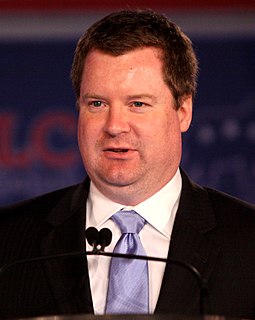A Quote by Erick Erickson
President Obama flew to China a few days ago and announced a joint environmental pact with the communist regime. The United States will reduce its carbon emissions substantially over the next 11 years. China will do absolutely nothing but hope that its emissions decline after 2030.
Related Quotes
The press heralded this as a major accomplishment. The rush from the press as soon as it was announced suggested a high level of coordination. Like lemmings in a staged dive off a cliff, 'historic' became the media's rallying cry. There is nothing historic about the deal. In fact, news reports from November 2012 noted that China expected, in 2012, that its carbon emissions would begin to decline after 2030 because of factory upgrades, efficiencies, etc.
The Chinese military budget today is officially listed as, I think, about $15 billion. But even if you double it, that's only a tenth of ours. So the possibility of China challenging the United States for the next ten years over the Pacific is next to zero. There could be a conflict between us and China over Taiwan, but I think that, too, will not occur with the proper policies on both sides.


































